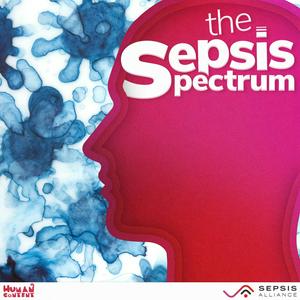Unpack the critical links between infection, antimicrobial resistance, and sepsis with host Nicole Kupchik, and learn how together, they’re placing intense strain on public health systems, communities, and the broader social factors that shape health and well-being. Joined by sepsis and infection prevention leaders Pat Posa and Dr. Cindy Hou, this episode explores how preventing infections before they happen remains one of the most effective strategies to reduce AMR and decrease sepsis risk across all care settings—from hospitals to home-based care. Major global health events, like the COVID-19 pandemic, have dramatically reshaped the landscape, exposing weaknesses in infection control and accelerating AMR challenges. As these challenges grow, education and public awareness have become essential tools. Essential for clinicians, sepsis coordinators, infection preventionists, and anyone across the continuum of care focused on quality improvement and reducing patient harm..
Featured Guests:
Pat Posa, RN, BSN, MSA, CCRN, FAAN (IG @patposa): Quality and Patient Safety expert known for leading sepsis bundle initiatives at Michigan Medicine and the Hospital Medicine Safety Consortium.
Cindy Hou, DO, MA, MBA, FIDSA (LinkedIn @cindy-hou-iddoc):Chief Medical Officer, Sepsis Alliance, Infectious disease physician and Infection Control Officer at Jefferson Health - New Jersey, specializing in antimicrobial stewardship and HAI prevention.
Key Takeaways:
Look at how infection, antimicrobial resistance (AMR), and sepsis are all tangled together—and how they’re putting serious pressure on public health, communities, and the social factors that affect people’s well-being.
Dig into why stopping infections before they start is one of the smartest ways to prevent sepsis, no matter where care is happening.
Think about how big global health moments—like the COVID-19 pandemic—have changed the game when it comes to AMR and sepsis outcomes.
Explore the real-world challenges that healthcare pros face when trying to tackle sepsis, hospital-acquired infections (HAIs), and growing resistance to treatment.
Revisit why education tools, like podcasts, matter—because spreading awareness and education can close knowledge gaps and spark real change in how we handle sepsis, AMR, and health equity.
—
Get in Touch:
[email protected]
Or Visit Us At: SepsisPodcast.org
Connect with Nicole on Socials: @nicolekupchik
Connect with Sepsis Alliance on Socials: @sepsisalliance
To Learn More About Sepsis, Visit EndSuperbugs.org
Produced by: Human Content and Sepsis Alliance
Sepsis is a life-threatening emergency that happens when your body’s response to an infection damages vital organs and, often, causes death. In other words, it’s your body’s overactive and toxic response to an infection. Like strokes or heart attacks, sepsis is a medical emergency that requires rapid diagnosis and treatment. Sepsis can lead to severe sepsis and septic shock. Antimicrobial Resistance (AMR) is a global health crisis where bacteria, viruses, fungi, and parasites evolve and become resistant to the effects of antimicrobial medicines. Antimicrobial Stewardship (AMS) is a coordinated approach to improve the responsible use of antimicrobials and minimize the spread of resistance.
